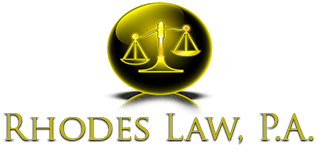The Benefits of Asset Protection and Finding an Asset Protection Attorney

What is asset protection?
Asset protection is a legal strategy used to protect your assets from creditors, lawsuits, and other legal claims. It involves structuring your assets in such a way that they are difficult to access and liquidate by creditors or other parties. This can include setting up trusts, transferring assets to family members, or establishing offshore accounts. Asset protection strategies can also be used to minimize taxes and maximize asset growth.
Types of asset protection
There are several different types of asset protection strategies, including:
Domestic Asset Protection Trusts - Domestic asset protection trusts are a type of trust that can be used to protect assets from creditors. The trust is set up by a trustor (the person setting up the trust) who transfers assets to a trustee (the person managing the trust). The trustee is responsible for managing the trust assets and protecting them from creditors.
Offshore Asset Protection Trusts - Offshore asset protection trusts are similar to domestic asset protection trusts, but they are set up in an offshore jurisdiction, such as the Cayman Islands or the British Virgin Islands. These trusts are more difficult for creditors to access and can provide more protection for assets.
Family Limited Partnerships - Family limited partnerships are a type of partnership between family members that can be used to protect assets from creditors. The partnership is set up by the family members, who are the limited partners. The limited partners are not liable for the debts of the partnership, so their assets are protected from creditors.
Benefits of asset protection
Asset protection can provide several benefits, including:
Protection from creditors - Asset protection strategies can help protect your assets from creditors and other legal claims. This can help you keep your assets safe and secure.
Tax benefits - Asset protection strategies can also provide tax benefits. For example, setting up a trust can help reduce your tax liability and maximize asset growth.
Peace of mind - Asset protection can provide peace of mind, knowing that your assets are protected and secure.
Do I need asset protection?
Whether or not you need asset protection depends on your individual situation. If you have a lot of assets or are facing potential legal claims, asset protection may be a good option for you. It is also a good idea to consult with an asset protection attorney to determine if asset protection is right for you.
Finding an asset protection attorney in Melbourne, FL
If you are looking for an asset protection attorney in Melbourne, there are several options. You can search online for asset protection attorneys in your area, or you can contact the local bar association for a list of qualified attorneys. You should also ask for referrals from friends and family who have used asset protection attorneys in the past. Once you have a list of potential attorneys, you should research their experience and qualifications to make sure they are the right fit for your needs. Asset protection is an important part of financial planning and can provide many benefits. Ruth Rhodes is a board certified elder law attorney at Rhodes Law, P.A. She can assess your assets for vulnerabilities and assist you in maximizing protection from creditors. Contact us at 321-610-4542 and schedule your consultation today!
You might also like




